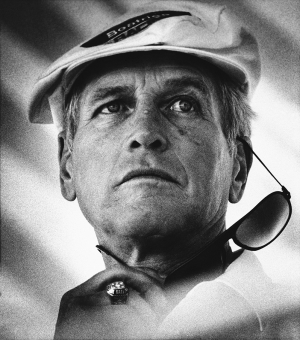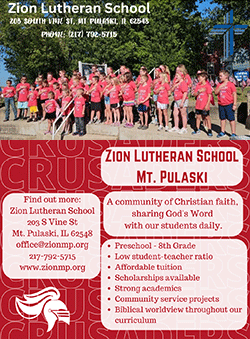Newman’s Own invites more companies to donate 100% of their profits to
charities
 Send a link to a friend
Send a link to a friend
 [January 24, 2025] By
THALIA BEATY [January 24, 2025] By
THALIA BEATY
The promise is not new, but still hard for many to believe: 100% of
profits from the sale of Newman’s Own foods, like salad dressings, pasta
sauce and popcorn, are donated to charity.
And to celebrate what would have been company founder Paul Newman ’s
100th birthday on Jan. 26, the Newman's Own Foundation is inviting
others to join them in that commitment, as part of the 100% for Purpose
Club.
In a TED talk released Thursday, Alex Amouyel, the foundation’s CEO and
president, made the case for why more for-profit companies should donate
all of their profits to social causes. She also pledged that the
foundation will provide guidance and advice to organizations that want
to make the switch.
“It is trying to be a proof point and trying to serve as a model for a
completely different type of organization,” Amouyel told The Associated
Press in an interview.
Newman, who was a megawatt, Oscar-winning Hollywood star and whose face
adorns all the product's labels, founded the food company in 1982. When
he died in 2008, he donated it to his foundation.
Newman's Own's structure is not one-of-a-kind, but it is unusual,
especially in the U.S.
Companies and founders reach out informally all the time, Amouyel said,
and she hopes that more will seriously consider it. An Australian
company, Humanitix, also donates 100% of their profits from selling
event tickets to charity and is the second founding member of The 100%
for Purpose Club.

It is easier for companies to follow the Newman's Own model after
Congress passed the Philanthropic Enterprise Act in 2018. The company
lobbied for the legislation for years because after Newman's death, they
found themselves in a bit of dilemma, said Celia Roady, a partner at
Morgan Lewis and an attorney for Newman’s Own Foundation.
At the time, foundations were prohibited from owning more than 20% of
any company in an effort to ensure that they focused on their charitable
work. The Philanthropic Enterprise Act, which then-President Donald
Trump signed into law, allows foundations to own corporations with some
conditions.
“They’re not trying to open up any big loopholes,” Roady said, but
instead pursued narrow changes “that would let companies that were
wanting to give it all away to be owned by a private foundation, which
seems like a logical owner for a company that has that kind of
initiative.”
Those conditions were that the foundation must own the company entirely,
that the company must donate 100% of its profits to charity, that a
majority of the foundation’s board must be independent of both the
company and the donor, and that the donor may no longer be involved in
the company’s operation.
In launching an invitation for companies to join them, Newman's Own is
also offering other levels of participation for companies that have
committed a smaller percentage of their profits to charity or resources
for companies or employees to learn more about how their organization
might donate more of their profits to a social purpose. Amouyel said
they know other foundations or companies may pursue different
structures.
[to top of second column] |

Actor Paul Newman watches racing at the U.S. Grand Prix in East
Rutherford, N.J., June 30, 1985. (AP Photo/Mario Suriani, file)

Humanitix is organized differently, in part because they are
incorporated in Australia. Another high-profile example, the outdoor
clothing company Patagonia, reorganized in 2022 to transfer its
ownership to a trust and to donate its profits to a nonprofit advocacy
organization that will campaign to protect the planet.
Amouyel said these models offer a path forward for those who believe
that capitalism works better than any other system, but isn’t working
well enough to do good in the world.
“This allows you to use its power and to generate money, but then to
make sure that the money is not about making rich people richer and
richer and richer,” she said, adding that she knows this won't work for
all businesses or sectors, but thinks it can work for more.
Nien-hê Hsieh, a professor at Harvard Business School, has studied
Patagonia's transformation and he sees value in having different
ownership models and a diversity of organizational forms across the
economy.
“Whether it’s a concern about monopoly or concentrated ownership" or
"the idea that, if you have a broader array or diverse array of
shareholders, that may lead companies to focus on different kinds of
ends and goals and be aware of some of the harms they’re causing,” he
said.
In 2022, Newman's Own said it had given away $600 million to charities
over the years, with a focus on supporting children. Newman founded a
network of camps for seriously ill kids, which continue to operate
across the country today, like Camp Boggy Creek near Orlando, Florida,
which provides a free experience for campers and their families. The
foundation also supports nutrition education in schools and food justice
for Indigenous communities.
So far, it's not clear that any other companies have used the
Philanthropic Enterprise Act to donate a company to be fully owned by a
foundation and to give away 100% of its profits. But Roady, the attorney
for Newman's Own, thinks it's still too early to judge the law's impact.
“In the scheme of things, the legislation is still pretty recent," she
said. "And so there’s still lots of time.”
All contents © copyright 2025 Associated Press. All rights reserved
 |